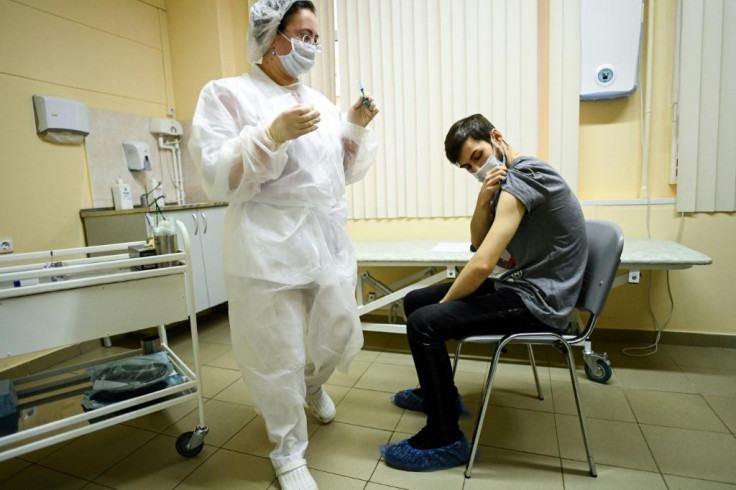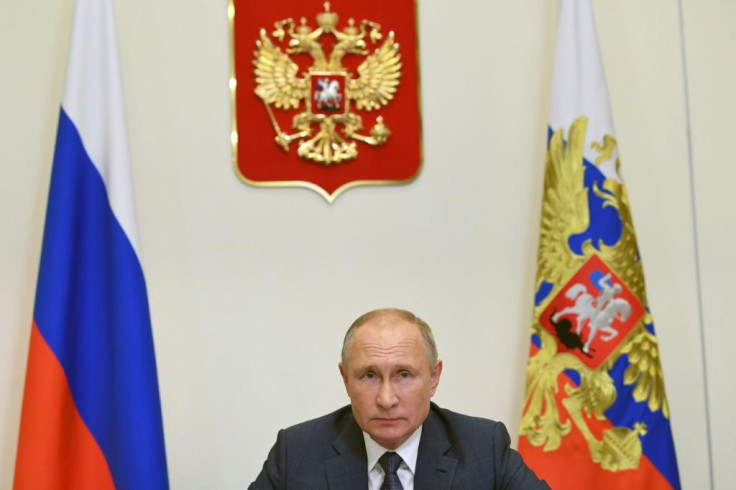Sputnik Vaccine aims to bolster Russia's geopolitical influence
Russia since an agreement with the Indian pharmaceutical group Hetero for the production of over 100 million doses per year.
Russia has sought to assert itself on the world stage through arms sales and energy exports, but the coronavirus pandemic has given Moscow another tool to win influence abroad: a vaccine.
President Vladimir Putin's announcement in August that Russia had registered the world's first coronavirus vaccine, Sputnik V, was met with raised eyebrows.
Scientists at home and abroad raised concerns that the jab had yet to complete mass trials and that crucial data about the vaccine had not been made public.
The developers have since claimed that the jab has an efficacy of above 95 percent according to preliminary data from phase 3 trials, but the full data has yet to be disclosed as the trials are ongoing.
But analysts said the jab was about geopolitics as well as public health, designed to reaffirm the underlying message of Putin's two-decade rule: Russia is back.
"It's a way for him to prove that Russia is capable of developing complex technologies and being at the top of the world's scientific elite," said analyst Tatiana Stanovaya, founder of the R.Politik centre, a political consultancy.
Putin wants to show that Russia is at the "forefront of this pandemic and even more successful than developed countries," she said.

After the disintegration of the Soviet Union, which for decades had sought to rival the West in science and technology, Russia found itself lacking a developed pharmaceutical industry.
The Kremlin has since tried to ease the country's dependency on Western labs through an import substitution programme.
The Sputnik vaccine "is one of the first designed exclusively in (post-Soviet) Russia," said former French ambassador in Moscow Jean de Gliniasty, describing it as "a point of national pride".
"This symbolises the return of Russia to the top leagues in pharmaceutics," said Gliniasty, now a Russia specialist at the French Institute for International and Strategic Affairs (IRIS).
Russia "will try to derive maximum benefit in terms of soft power," he told AFP.
The name chosen for the vaccine speaks for itself.

Sputnik V is named after the world's first satellite launched by the USSR in 1957 and recalls a Russian accomplishment that was a historic setback for its Cold War rival, the United States.
Ignoring accusations by Britain of Russian-linked hackers targeting vaccine research, Moscow has said it is open to cooperation with Western countries and has proposed a partnership with the UK-based AstraZeneca and Oxford University which have developed their own inoculation.
But so far it is mainly allies that have volunteered to join forces on the vaccine roll-out.
India, Venezuela and Belarus have said they will partner for clinical trials and other Kremlin-friendly governments have pre-ordered more than one billion doses of the jab.
But ultimately, Stanovaya said, there remains a question mark over whether or not the vaccine was actually effective since Russia was seen as using it primarily for geopolitical clout.
"To have geopolitical dividends you need a successful product first," she warned.
Russia has also hurried the vaccine along in the hopes of avoiding a second lockdown that would further damage the economy.
While European countries have recently reimposed virus restrictions, Russia held back from introducing sweeping measures and instead pinned its hopes on the quick arrival of the vaccine.
Russia announced earlier this month that 1.2 billion doses of Sputnik V had been pre-ordered worldwide.
But authorities have indicated that only two million doses will be produced in the country by the end of 2020 -- well below what is needed to protect some 145 million Russians when two doses are required per person.
Putin acknowledged in late October that Russia was facing production problems and said the country was "ready to work with our foreign partners".
Russia since confirmed an agreement with the Indian pharmaceutical group Hetero for the production of over 100 million doses per year.
Nathalie Ernoult, the co-director of the IRIS Global Health think-tank, said Russia's lack of production capacity was one clear way to forge mutually beneficial relationships with other countries.
If Russia were to share the Sputnik V formula with other countries, this would increase its own production capacity and at the same time "would respond to an appetite of a certain number of countries to work towards autonomy".
Copyright AFP. All rights reserved.
© Copyright IBTimes 2025. All rights reserved.





















